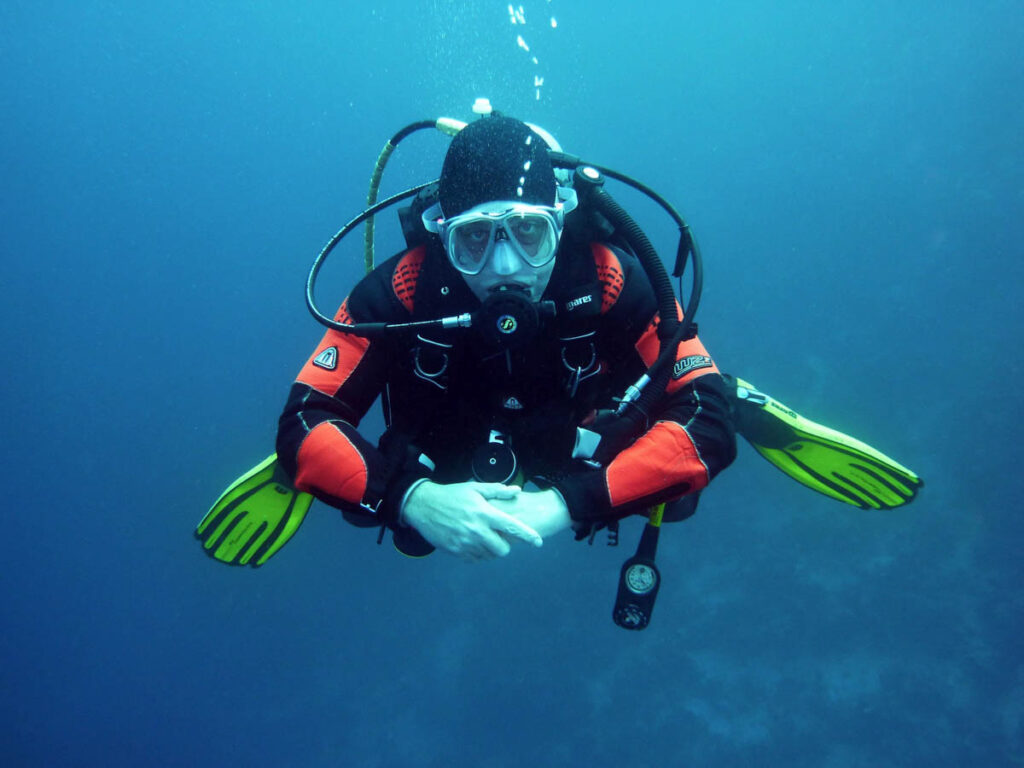Are you a recreational diver seeking to turn your love for the underwater world into a fulfilling career? Whether you’re looking for a scuba diving instructor job or planning to work as a commercial diver, you may be surprised that the diving industry offers many opportunities in adventure, education, conservation, and exploration.
In this article, we teamed up with experts from job aggregator Jooble to take a closer look at the different diving jobs as well as some useful steps on how to go about starting a career in this unusual and exciting field.
What types of diving jobs are there?
It may not be apparent to some of us, but there are actually many diverse diving jobs available, and all of them call for different kinds of expertise and experience. Here are some examples:
Diving Instructor
Diving instructors teach others how to dive safely. This involves conducting training programs, certifying divers, and guiding students through various levels of certification.
Diving Guide
Diving guides accompany other divers underwater, leading them to dive sites and ensuring their safety. They typically have a thorough knowledge of particular dive sites in addition to a broad understanding of local marine life.
Commercial Diver
Commercial diving includes a wide range of underwater work, such as underwater welding, inspection, construction, maintenance, and salvage operations. These divers frequently operate in the oil and gas, building, marine engineering, or environmental services sectors.
Underwater Photographer/Videographer
You can pursue a profession as an underwater photographer or filmmaker by taking pictures or videos of marine life, coral reefs, or old shipwrecks and selling them to online photo stock agencies or mainstream publications.
Scientific Diver
Scientific divers play a crucial role in marine research and environmental conservation. This job includes assisting scientists in collecting data, monitoring ecosystems, and studying marine life.
Public Safety Diver
Public safety divers usually work for law enforcement agencies, fire departments, or in search and rescue teams. They specialize in underwater search and recovery operations, crime scene investigations, and assisting in emergencies such as water-related accidents or disasters.
Underwater Archaeologist
Underwater archaeologists explore and study submerged archaeological sites, investigating ancient shipwrecks, submerged cities, or other historical underwater locations.
5 Steps on how to go about getting a job as a diver
Now that you have some idea of the type of diving job best suited to your skills and interests, it’s time to take a look at some of the steps to take to make your dream diving job a reality.
1. Obtain the necessary certifications
First things first. Depending on the diving job you’re aiming for, you will probably need specific certifications. For example, becoming a dive instructor requires completing an instructor development course and obtaining certifications from a recognized diving organization such as PADI or SSI.
2. Experience
You will need to build on your diving experience and you can do this by exploring various dive sites. This will not only help enhance your skills but also build your confidence, as well as increase your knowledge of marine ecosystems. A good way to do this is to join dive clubs, participate in group dives, or go on diving trips.
3. Network with the diving community
Connect with other divers, dive instructors, and professionals in the diving industry. You can do this online or by attending diving events and workshops. This can lead to valuable contacts and potential job opportunities.
4. Ways to find diving jobs
To find diving jobs, check job boards dedicated to diving, or visit the websites of dive centers, resorts, and marine research organizations. You can also contact local dive shops or dive operators.
5. Volunteer
If you’re just starting out, build contacts and gain more experience by volunteering. This will also give you an invaluable opportunity to learn from experienced divers and gain practical skills.
Final thoughts
Turning your passion into a rewarding and fulfilling career is undoubtedly an exciting prospect. However, the underwater world is not only beautiful, it can also be dangerous. Remember to continuously build on your skills, and always maintain a strong focus on safety.
With that said, the vast ocean awaits you.







